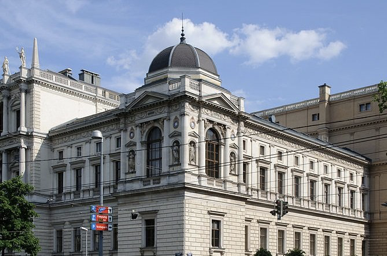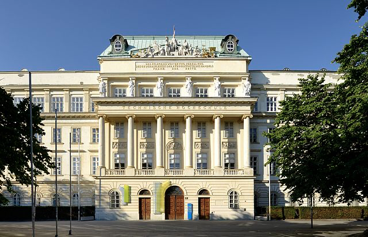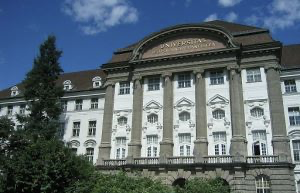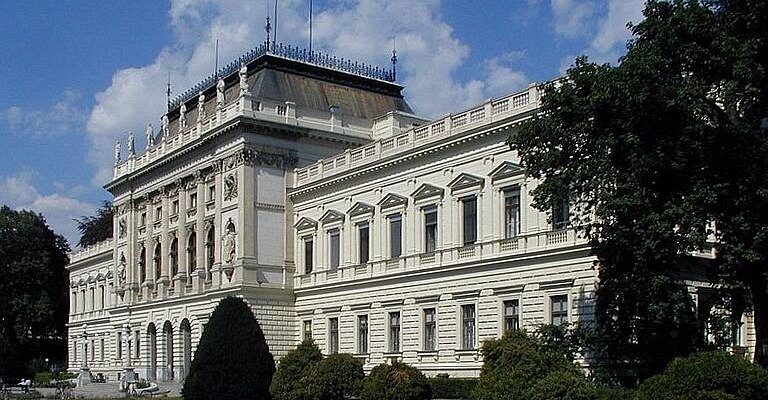

Austria, or the Republic of Austria is a federal republic and a landlocked country of over 8.66 million people in Central Europe. It is bordered by the Czech Republic and Germany in the North, Hungary and Slovakia in the East, Slovenia and Italy in the South, and Switzerland and Liechtenstein in the West. It is dominated by the Alps in its southeast and center, and the River Danube on which the capital city Vienna is built. Austria is a largely mountainous country due to its location in the Alps. The greater part of Austria lies in the cool/temperate climate zone where humid westerly winds predominate.
Austria is a parliamentary representative democracy comprising nine federal states. It is the 12th richest country in the world in terms of GDP (Gross Domestic Product) per capita and has a very well‐developed social market economy and a high standard of living. Quality of life in Austria is regularly rated amongst the highest anywhere in the world. Vienna was named the world’s leading city for Quality of Life for the eighth year running in Mercer’s 2017 Quality of Living Survey. Home to over a quarter of Austria’s population, Vienna is renowned as one of Europe’s great cultural capitals, and is a popular choice for many international students.
Majority of the population speak local Bavarian dialects of German as their native language and Austrian German is the country’s official language. Euro is the official currency of Austria. Austria gave the world great composers such as Wolfgang Amadeus Mozart and innovative thinkers such as Sigmund Freud and Ludwig Wittgenstein, the iconic musical, The Sound of Music.
Some of the famous cities in Austria are Vienna, Innsbruck, Graz, Salzburg and Linz. The capital and largest city, with a population exceeding 1.7 million, is Vienna. It boasts one of the world’s highest standards of living, a large and diverse student population, and an incredibly rich cultural landscape. This combines with its strong universities and relatively low tuition fees to earn it a place among the world’s top 20 cities for students in the QS Best Student Cities index. Vienna has preserved an impressive amount of green space, attractive architecture, magnificent palaces, some of the world’s most celebrated museums, and renowned café culture. The city has a particularly impressive musical and artistic pedigree (having been home to Brahms, Beethoven, Mozart, Fuchs, Klimt, and Loos, among others), and has several prestigious academies dedicated to Fine Art and Music. It’s also home to two of the highest-ranked universities in Austria: the University of Vienna and Vienna University of Technology, ranked 154th and joint 182nd in the world respectively.
Twice host to the Winter Olympics, alpine city Innsbruck is paradise. Austrian Alps are always in sight. One can reach the top in a cable car in less than half an hour. Its a combination of attractive traditional and modern architecture, against the mountain backdrop. Innsbruck is also known as a student-centered town. It’s home to Austria’s third largest student population. There are several universities here, of which the most prominent is the Universität Innsbruck, ranked within the world’s top 300.
Austria’s second largest city, Graz is a student town with four universities. The best-known institutions is Karl-Franzens-Universität Graz (also called the University of Graz), which ranks within the world’s top 500 in the QS World University Rankings 2018. Graz is also renowned for its food, a fact which earns it the title of the culinary capital of Austria.
Why Study in Austria
The structure of higher education in Austria is similar to rest of Europe. The country provides great diversity and cultural richness. It is a great experience both historically and culturally. Austrian institutions offer varied programs starting from research-based courses, art courses, and programs in applied sciences. The economic stability, social security, and great hospitality of Austrians is what attract international students. Austria has high standards of living. It has a thriving tourism industry, beautiful scenery, and is a fascinating historical landmark..
Austria provides a high standard of education for low tuition fees. Some of Europe’s finest scientists, philosophers, and writers are from Austria. It is a traditional place to study and stay. It provides quality education and offers Masters’ programs taught exclusively in English. It is one of the most industrialized countries in the world. Students can work part-time and earn up to 9 to 12 Euros per hour. Students also have Internship opportunities in numerous Multinational Companies in Austria.
An Austrian visa is a European Union Visa and allows students to travel to all other Schengen countries which provides a great opportunity for students to travel to nearby places during the course of studies.
Austrian Universities rank among the world’s best. Seven universities in Austria are featured in the QS World University Rankings, 2018. Of these, five Austrian universities are ranked among the world’s top 500: University of Vienna, Vienna University of Technology, Universität Innsbruck, Karl-Franzens-Universität Graz. Other Austrian universities ranked among the world’s best including Johannes Kepler University Linz, Alpen-Adria-Universitaet Klagenfurt, and Paris Lodron University of Salzburg.
The University of Vienna is the largest and highest-ranked Austrian university, 154th in the world in the QS World University Ranking. It celebrated its 650th anniversary in 2015, the oldest in the German-speaking world. Today it’s one of the largest universities anywhere in Europe, with around 94,000 students enrolled. The university is associated with 15 Nobel Prize winners, including 2004’s recipient of the Literature Prize, Elfriede Jelinek.


Established in 1815, Vienna University of Technology is one of the most prestigious technical institutions in Europe ranks 182 in QS Ranking. The focus is in the fields of engineering and natural sciences, and has around 29,900 students enrolled, with an impressively high percentage of international students (it ranks within the world’s top 100 on this indicator). Located in the beautiful Austrian capital, offers students the opportunity to take advantage of the city’s vibrant cultural life.
Ranked 286th in the world overall, Universität Innsbruck, ranks within the world’s top 35 for its proportion of international students, and the top 95 for proportion of international faculty members. It is the third largest in Austria and is located in city of Innsbruck. Given its mountain-surrounded location, it is particularly renowned for its work in the field of mountain research.


The University of Graz was founded in 1585, which makes it Austria's second oldest university. Students can find here many scientists and have the opportunity to study where six Nobel laureates completed their studies. The university is located in Graz, Austria and is one of the largest in the country. The institution has six different faculties and approximately 120 study courses.